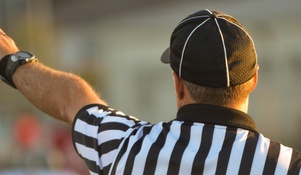5 Sleep Studies for Professional Athletes and Peak Performance

It’s no secret that quality sleep can play a big role in a healthy life. From regulating mood to helping reduce the risk of heart disease, sleep plays a big role in our lives. So sleep becomes even more important if you’re an athlete, meaning it helps to look at sleep studies for professional athletes.
Sleep studies for professional athletes abound, including findings that reaction times decrease with less sleep and that less sleep increases the risk of sports injury in youth.
Below are five other studies for professional athletes that will help you perform at your best on the field.
Sleep and its direct effect on winning
From: Journal of Strength and Conditioning Research
This study took a look at the relationship between sleep quality, mood states and athletic performance. It looked at 576 Brazilian elite athletes (404 men and 172 women) during a competitive season. Athletes were given a questionnaire, asking them to rate mood levels and sleep quality over the past few days.
Result: Those with poor sleep quality had lower vigor and a lower chance of winning.
Napping helps complex motor learning
From: Sleep Science
Here’s a study that took a look at how taking a nap affects complex motor learning, where juggling performance was used as the metric. The study looked at 18 participants and some were assigned a 70-minute nap or told to stay awake following juggling practice. Juggling performance was tested that evening and the next morning.
Result: Both groups increased their juggling performance, but the nap group made specifically higher jumps in their performance. The nap group also made huge jumps in skill in the morning test, where the non-nap group made no significant improvements after a night’s sleep. The researchers concluded that nap periods may benefit daily athletic training.
Electronic device use and athletic performance
From: Journal of Sports Sciences
Many studies have been done to assess the quality of sleep in conjunction with electronic use late at night, but this study takes a look at how electronic devise use affects sleep, and in turn, athletic performance. Eight skilled netball players were brought to a sleep center and told to complete both cognitively stimulating tasks like puzzles and passive tasks like reading either with a tablet or without. Then their sleep was monitored.
Result: This is one of the more uplifting sleep studies for professional athletes. It was found that using a tablet right before bed did not significantly affect sleep quality or amount, or even next day athletic performance.
One interesting bit of data to note, however, is that melatonin (the “sleep hormone”) increased after reading versus completing puzzles on a tablet. So on a night when it’s hard to sleep, the good old remedy of reading before bed may be in order.
Being an athlete helps sleep
From: Clinical and Investigative Medicine
This study looked at the difference between the sleep quality of athletes and non-athletes. It was assessed using a survey called the Pittsburg Sleep Quality Index.
Result: Athletes had much higher levels of sleep quality than non-athletes. The study concluded that long-term physical activity helped for a healthier lifestyle and better physical functioning.
Sleep deprivation can cause severe impairment
From: Occup Environ Med
This is one of the top sleep studies for professional athletes if you’re the type of person who likes to pull all-nighters. The study looked at 39 subjects. Some were running on a 28-hour sleep deprivation time period and others had a 0.1 percent blood alcohol concentration.
Result: It turned out that just after 17 to 19 hours without sleep, response speeds were 50 percent slower. The official conclusion was that sleep deprivation produces similar impairments in motor performance as legally intoxicated levels of alcohol consumption.
